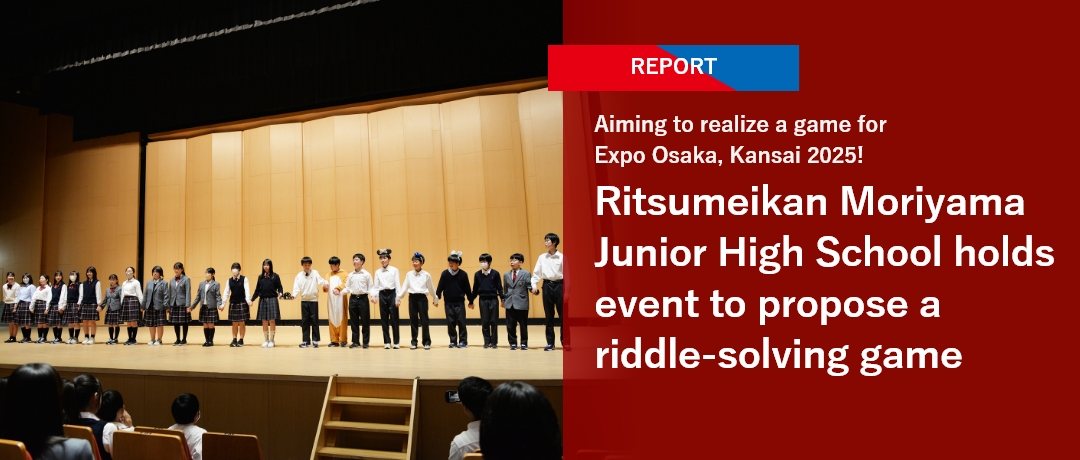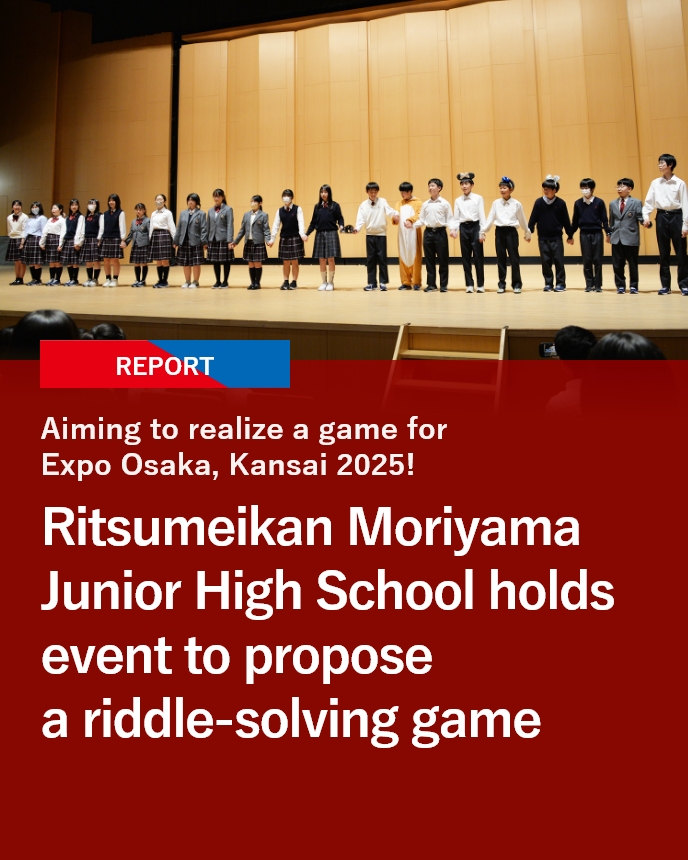In preparation for Expo Osaka, Kansai 2025, Ritsumeikan Moriyama Junior High School is working on a proposal for a riddle-solving game that uses the Expo venue and the wider world as the field for implementation. In this game, visitors can enjoy exploring the Expo while referring to a special booklet and solving riddles using clues from various locations, buildings, events, and experiences at the Expo site.
As part of their preparations, the students welcomed Sachiko Nakajima, one the Signature Project Producers for Expo Osaka, Kansai 2025, on Friday, April 26, where they played OIC Quest, a riddle-solving game created by the students. They had Ms. Nakajima play the game, and then asked for her advice on how to make it part of Expo Osaka, Kansai 2025.
Osaka Ibaraki Campus transforms into a school of magic! Students solve riddles to defeat the Demon King.
This time, all 170 second-year students of Ritsumeikan Moriyama Junior High School came to the Osaka Ibaraki Campus to play the OIC Quest riddle-solving game. The setting for OIC Quest was that the second-year students, who were supposed to be at Ritsumeikan Moriyama Junior High School, had been respawned at OIC, which had been transformed into a school of magic ruled by a Demon King. The participants had to solve riddles posed by the Demon King's minions to obtain the key they needed to return to their original world. The riddles in the game were conceived by the students during a previous visit to OIC. To run the game at Expo Osaka, Kansai 2025, the students will visit the venue and pavilions in advance to create a riddle-solving game unique to the Expo venue.
On the day of the event, the students were divided into two teams, one to pose the riddles and one to solve them, and Ms. Nakajima joined the riddle-solving team. The rules stated that each group had to start from a different spot and attempt to solve the riddles posed by the other team. After solving a riddle, the team received a number, and then using the OIC Quest Map (a map of the entire campus) distributed before the game, they moved to the next spot. At each spot, members of the team posing the riddles, who were dressed as the Demon King's minions, gave the other team a riddle that they had to solve before they could move on to the next spot.
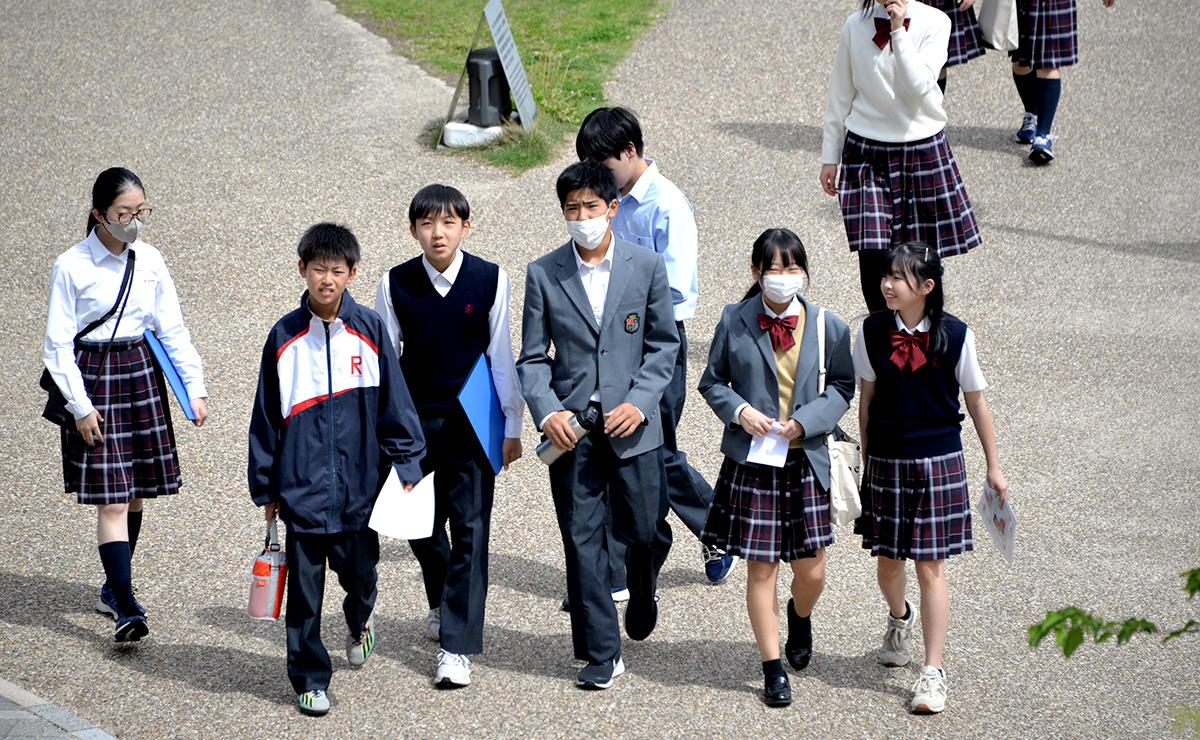
Ms. Nakajima’s team moved from spot to spot as they solved the riddles posed by the students playing the role of the Demon King's minions who were waiting for them at each location. The members on the riddle-solving team searched for answers to the riddles dreamt up by the creative junior high school students, such as "find the numbers hidden in the model of the campus and add them up," and "which number is common to all objects encountered when walking in the Satoyama Area?” When the riddle-solving students gave the wrong answer, the students posing as minions would rebuke them harshly with dramatic lines like, “You fools! It’s not that simple!” After that the minions would offer hints, but sometimes they struggled to give hints so as not to hinder the progress of the game, and you could hear their opponents shift back to their normal tone of voice and say, “Hey! You’ve gone too far!”
After the team finished solving the riddles, everyone gathered in the Grand Hall of the Ritsumeikan Ibaraki Future Plaza, where a skit was performed on stage by students on the planning committee, and the Demon King appeared to present the final riddle. Once the students solved this riddle, the game ended, and the students were able to safely return to their original world.
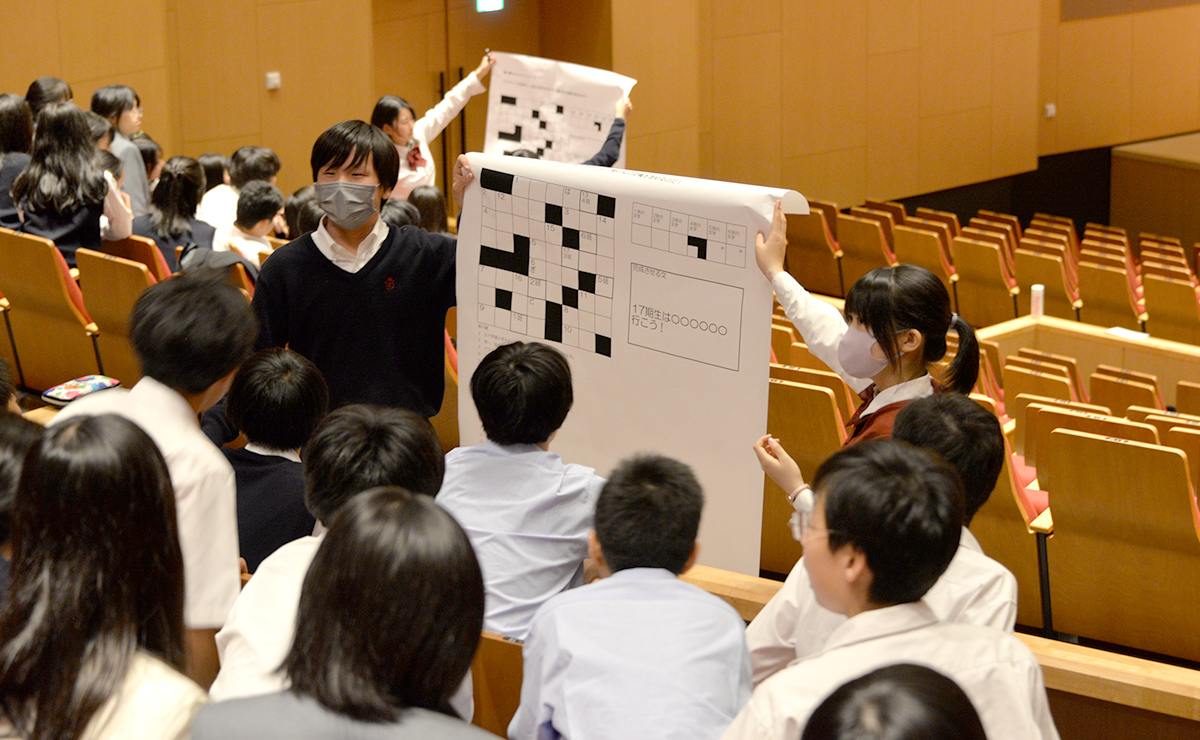
Session between the students and Ms. Nakajima to improve upon the game ahead of the Expo
After the game, a session between Ms. Nakajima and the students was held. “Congratulations to everyone who was able to escape from the Demon King and return safely. I walked all over campus as we worked to solve the riddles. The dramatic flair and other elements of the game other than the riddles made me chuckle. It was a very fun event, “ said Ms. Nakajima, who worked with the riddle-solving team. Next, she asked the students what they learned from this experience, and several of them came on stage to share their impressions.
A female student who played the role of the mid-level boss posing one of the riddles said, "It was funny to see how surprised everyone was when I posed my riddle like a second-year student going through the awkward pre-pubescent phase. But when the other team came close to guessing the right answer, I found it hard to keep a poker face.” Another student confidently stated, “Even though I experienced the game as a third party, I found the story riveting." Next, to respond to a student's question about a riddle that was difficult to understand, a member of the team who conceived the riddle explained the intent behind it.
Kota Nakadate, who works with Nakajima to promote STEAM education, also participated in the riddle-solving game as a guest, and he walked around the campus with Nakajima and the riddle-solving team. “If you can make this riddle-solving game a reality at the Expo, then everyone here today can have a shared sense of working together toward the Expo. There are not many schools taking this kind of approach,” said Nakadate, heaping praise on the students. “The team posing the riddles had to gauge the facial expressions of the other team, so I think you came away with a good idea of how to communicate with others,” he continued, and he advised the students to discuss ways they can improve the game.
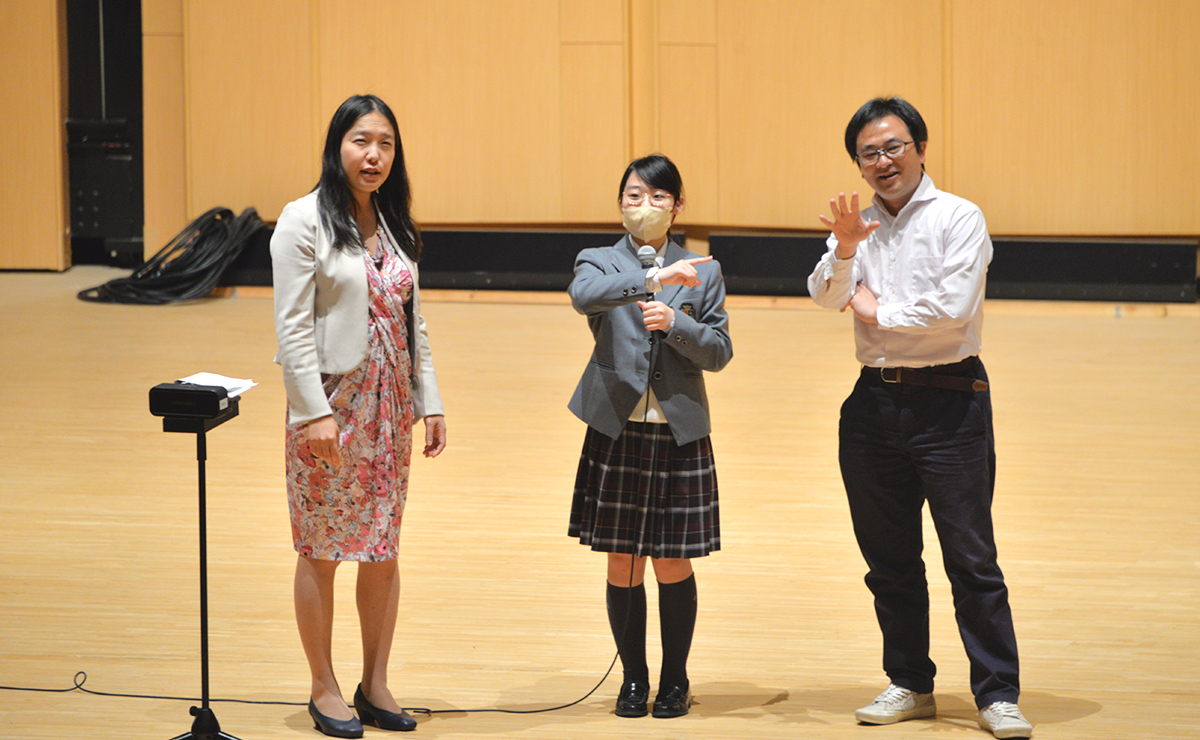
The session ended with some advice from Ms. Nakajima, who told the students to keep two perspectives in mind. First, she told them to consider stories and questions from a global perspective involving the approximately 160 countries that will be participating in Expo Osaka, Kansai 2025. Next, she advised them to be inclusive when designing the game, such as asking questions that can be enjoyed together with people with disabilities, such as those in wheelchairs or the visually impaired.
“The Expo is an opportunity to connect with people who don't know yet, including people from different countries and people with different attributes from you.” The concept for Expo Osaka, Kansai 2025 is to be ‘a testing ground for the future.’ I hope you will think deeply and try new things as you work to create a riddle-solving game that can make people laugh. Today was a very fun day.” After leaving the students with these words of encouragement, the students gave Ms. Nakajima a round of applause and the session concluded.
Working to make the game global and inclusive
We spoke with the teachers and students after they finished OIC Quest.
Mr. Inukai and Ms. Inada, two teachers at Ritsumeikan Moriyama Junior High School, introduced this initiative as part of the school's inquiry-based learning program. They say they take pride in the fact that this is an extracurricular activity that other schools cannot offer, and they plan to continue to experimenting with it.
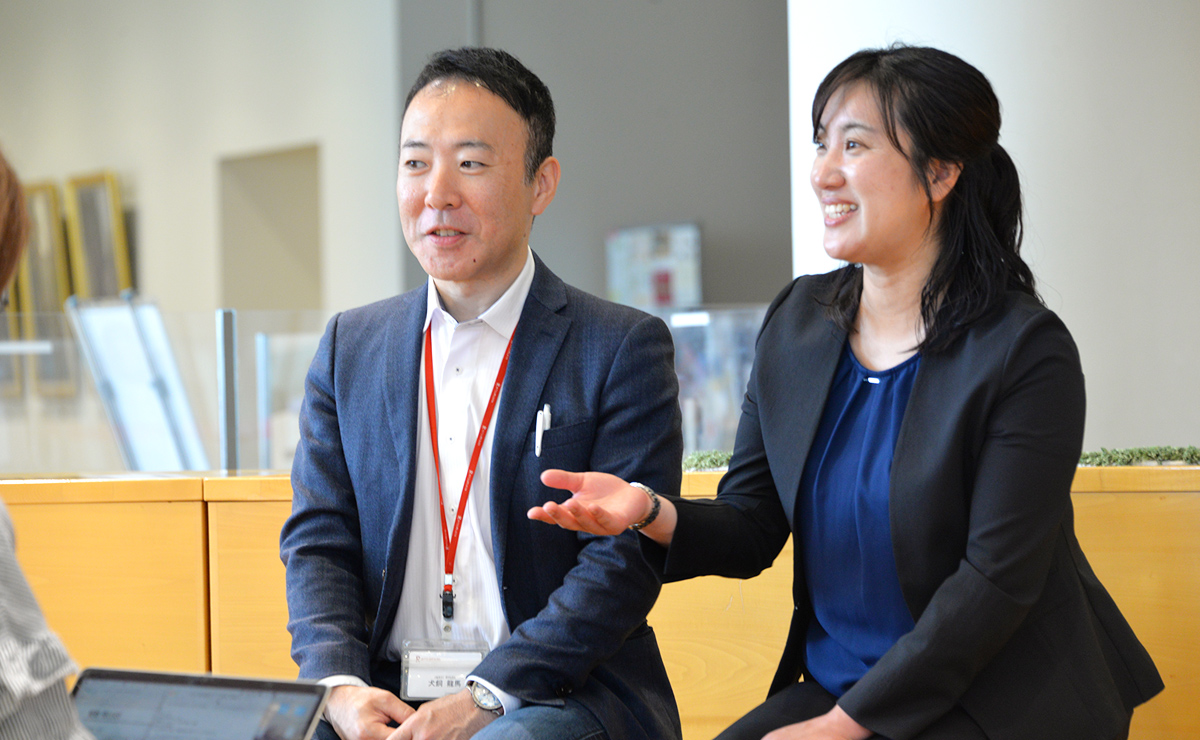
“At Ritsumeikan Moriyama, we incorporate a riddle-solving game developed by the teachers into our orientation for new students. Ms. Nakajima found this interesting, which led to the idea of holding a riddle-solving game planned by the students at the Expo," explained Mr. Inukai.
For this project, the teachers played a professional riddle-solving game, analyzed the structure of the game, and then created their own game so they could explain it to the students. After the students played that game, they created OIC Quest.
“I was impressed by the originality of the riddles created by the students, some of which were not in the format of the examples we had shown them. However, there are still some areas, including game management, that are not completely refined, such as how to set the difficulty level and giving out too many hints. These are the issues that we will need to address going forward,” said Ms. Inada
The teachers also hope to incorporate the global and inclusive elements that Ms. Nakajima mentioned in the session with the students in preparation for the Expo. The students involved in today's game will have an opportunity to think about the rules during a ball game they will play with wheelchair users in a class for first-year junior high school students, and the teachers told us that, in the future, they hope to incorporate an understanding of diversity and interacting with people from different countries, two things the students have learned so far, into the riddle-solving game.
Next, we spoke with four students representing about 20 members of the planning committee who conceived the backstory for OIC Quest. Ms. Okuda, the chair of the planning committee, said, "I had a lot of fun discussing and creating the game with my classmates during the practice run-throughs and script writing process. However, there was a difference among the members in the level of dedication to the game, and I regret to say that I am not sure if we were all able to work together as one. For the next game, I want to make sure that everyone can enjoy themselves throughout the whole process, from the time we write the riddles until the day of the event," she said enthusiastically.
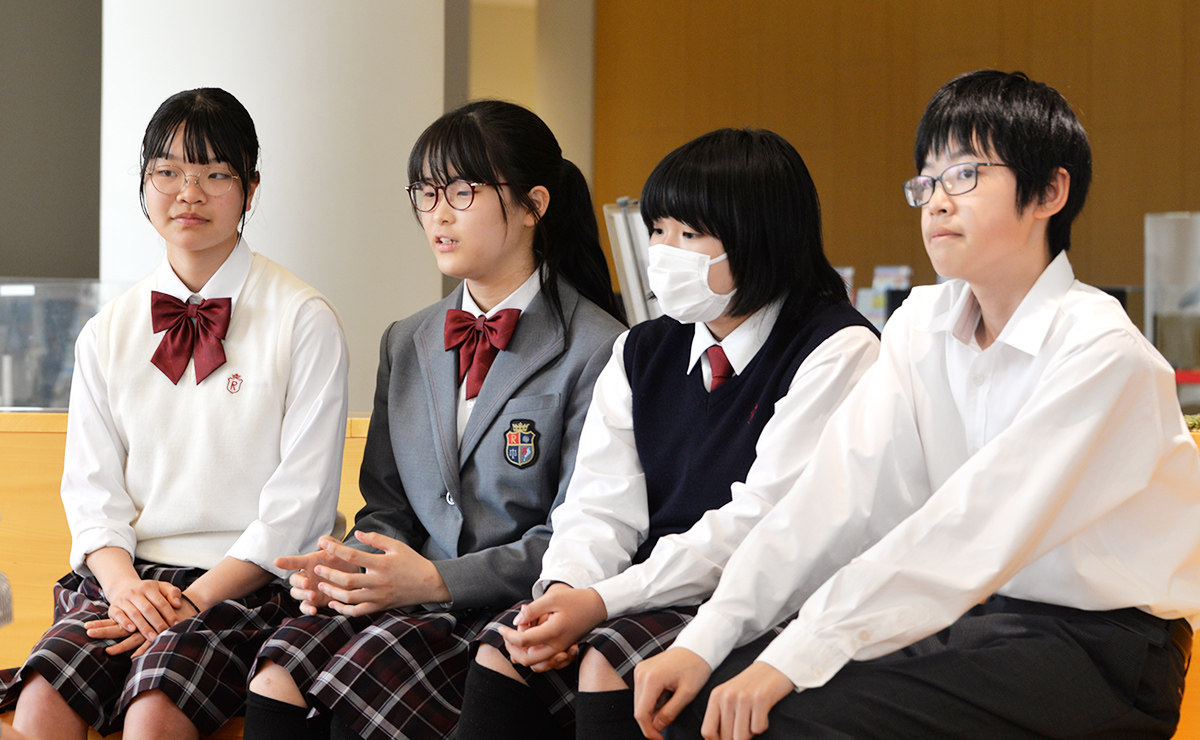
“I regret that we had to consider the difficulty of the riddles separately from the issue of how clearly the riddle-posing team could convey them,” said Ms. Matsumoto. “I am glad that we were able to create an entertaining world. Next time, I would like to think of ways to get the participants more involved in that world,” said Ms. Murata. “It was hard to determine the level of the riddles and to give out the right number of clues,” said Mr. Ueno.
“I want the students to create a riddle-solving game from a broader perspective.”
Finally, we spoke with Ms. Nakajima about the riddle-solving game and preparations for Expo Osaka, Kansai 2025. According to Ms. Nakajima, hands-on riddle-solving games like OIC Quest are popular both at home and abroad. What’s more, she says the World Expos is changing from being a place where visitors can see the latest technology to a place where they can experience the creation of something together with each other. In light of this, Ms. Nakajima said she has high hopes for Ritsumeikan Moriyama Junior High School's efforts since she was already toying with the idea of holding a hands-on event like the puzzle-solving game at Expo Osaka, Kansai 2025.
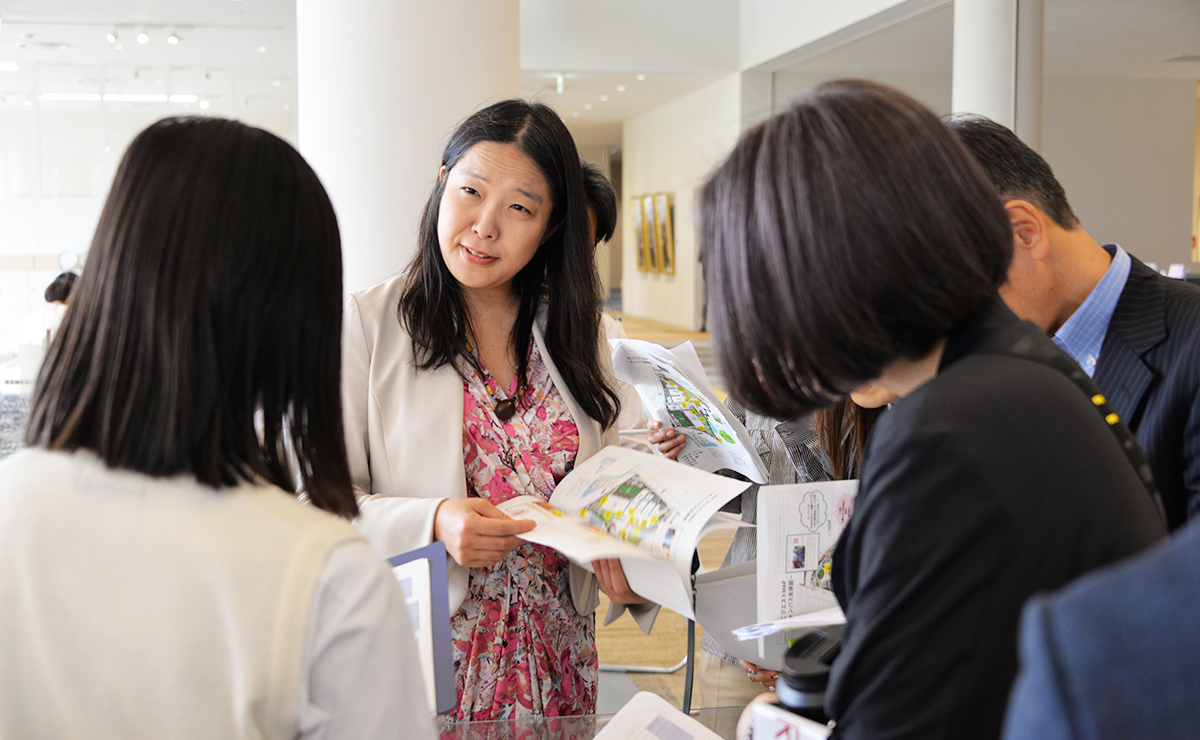
“While it is important for the game to be entertaining and it is easy to focus only in this aspect, I think the real purpose of the game is to get participants to realize something and to create encounters. To make this game a reality at Expo Osaka, Kansai 2025, I hope the students will approach it from a broader perspective so that it encourages visitors to think about the main theme of the Expo, namely, what does it mean to ‘design a future society for our lives,’” said Ms. Nakajima.
Finally, Ms. Nakajima offered the students the following words of encouragement.
“There is one year left until the Expo. If you would like to meet with Expo staff from different countries to get ideas for the riddle-solving game, we would be happy to support you by providing opportunities to interview them before the Expo. I hope this will create the foundation from which you can make the game a reality next year.”
Ritsumeikan Moriyama Junior High School plans to brush up the riddle-solving game by implementing it at the school's Open Campus and other events going forward. We look forward to seeing the students realize their riddle-solving game at Expo Osaka, Kansai 2025.
